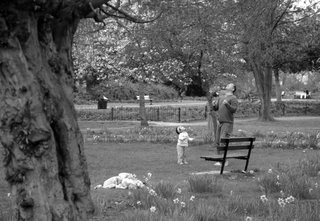draft number 127
 Grace has been on my mind a lot this year. I’ve been asked to write on it, speak on it, and think on it. So I have. All three. Sometimes with surprising results.
Grace has been on my mind a lot this year. I’ve been asked to write on it, speak on it, and think on it. So I have. All three. Sometimes with surprising results.You would think that grace would be easy to discuss. It’s what we, as Christians, have based our entire faith on. You’d think we would know quite a bit about it. But I find that my own understanding of grace, especially God’s grace, is quite limited.
Like anything about God’s character, I immediately base my understanding of it by what I see in my own life or in the lives around me. And, sadly, the grace that I offer is extremely limited. So, while I understand that God’s grace is bigger than mine, it’s hard to fathom it. I mean, just how much bigger is God’s grace? Ten times bigger? A hundred? A thousand? A million? And, even if I were to answer that question, what would it even mean to give a million times more grace than I give? What does that even look like?
I was actually asked to speak on grace at an engagement this past Monday night. As I was preparing for it over the weekend, I asked Jamie if there were any good Biblical stories of grace that I was leaving out. She mentioned David. And my immediate reaction was, no, I don’t want to talk about David because his great sin was adultery and I don’t want to give people a license to commit adultery. And, just as soon as those words came out of my mouth, I realized that I was not truly prepared to speak about the full measure of God’s grace.
The grace that God offers appears to me to be rather reckless. In fact, it seems quite irresponsible. If you were to offer me that same kind of grace, one of your friends would eventually pull you aside and warn you that you were being taken advantage of. That you were being walked on.
I was asked to write about grace, this past year, for what we’ll call an unnamed publication. I thought and thought about what to write about. In fact, I wrote several different drafts on several different topics. But one day I sat down and simply wrote about my own struggles. Specifically, my struggle with a certain position that the church takes on a particular topic. I was in no way saying that the church was wrong in their stance. Only that my heart struggled and grieved over it. In the end I finished up by asking the readers if they were prepared to extend to me the kind of grace I would need to wade through the topic and, hopefully, come out with a firm foundation on the other side. I’m guessing that the answer was no. Not only did the publication decide not to publish my article, but the person who asked me to write it was reprimanded by the editor for even submitting it for publication.
I grew up in a church that believed you could not lose your salvation, yet a Christian school that believed you could. I spent years trying to figure out which side was right. Along the way I came to realize that, even in the case of my church, the grace we were prepared to extend only went so far. For instance, if somebody claimed to be a believer, but then committed a sin that we deemed too big, we would simply explain it away by suggesting that the person had never truly been a Christian to begin with. Grace limited.
We are uncomfortable with grace. On one hand, we’re glad it exists because it’s what gives us a chance. On the other hand, we see it only extending as far as allowing us an initial forgiveness of sins but then forgiveness, from that point on, only as long as we’re prepared to be committed to a very specific lifestyle. You’re uncomfortable reading that and, believe me, I’m uncomfortable typing it because in the end, that’s what I believe too.
After twenty years of study on the topic of salvation and one’s ability to lose it, I’ve only come to a few decisions; One, I don’t know. I have no idea. I can argue both sides strongly and back up both sides with scripture. Paul, Peter, and James all seem to come at it from different angles and, possibly, with different opinions. So I don’t know. Two, I have a feeling that even those among us who offer the most grace will be surprised to see who God lets into heaven. In fact, it’s a good thing that we won’t know until we get to heaven because I could see it being quite scandalous if we knew about it on earth. I could see it being quite divisive. Kind of like the workers in the vineyard (Matthew 20:1-16).
I don’t know quite where I’m going with this. I think that it might be an ongoing conversation. One thing’s for sure, if my faith isn’t even the size of a mustard seed compared to God’s, than the rest of my character probably isn’t either. What does that say about God’s grace? Just how reckless and irresponsible is it???
In reading over this, I think I need to try again.

